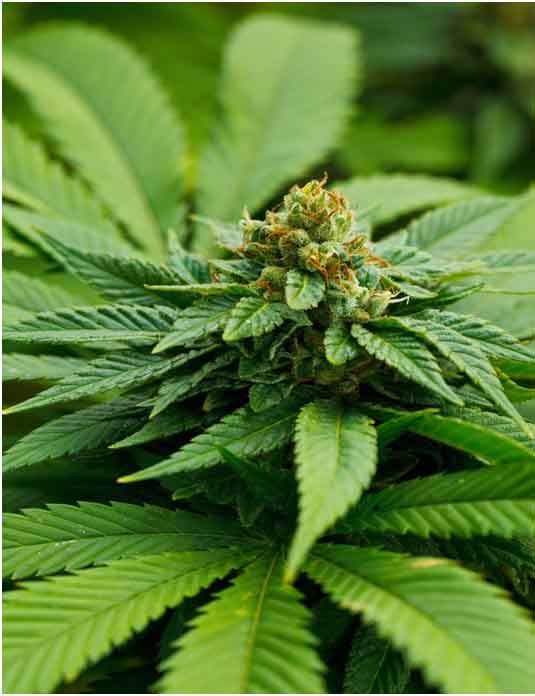
No other plant in the history of mankind has been given nearly as much attention as marijuana. Considered by many a panacea for most of the body and the spirit’s ailments, while seen asthe “assassin of youth” by others, marijuana surely doesn’t need further introduction. According to the United Nations statistics, 94 million Americans and 158.8 million people around the world use marijuana – almost 4% of the globe’s population.
And yet, many of us know very little about the little green plant. If you’re like most Americans, you’ve probably been raised to believe that marijuana is evil, causes addiction and is extremely dangerous to anyone who tries it even once. Despite the fact that marijuana’s effects are not nearly as dangerous as those of alcohol and tobacco – the most abused legal drugs causing millions of victims annually – people get arrested for possessing even small amounts of the substance, and convicted to hefty fines and jail time for serious criminal charges.
Aside from abusive laws and harsh sentences, there’s a great deal of misinformation regarding marijuana. Here we list five of the most common myths about “the green menace”, including some key aspects regarding use and abuse. Read on to find out which are the facts and which pure fiction.
1.Casual use leads to addiction
Studies have shown that long-term use of pot may cause addiction, but not nearly to the same extent as other legal and illegal drugs. Caffeine, nicotine and alcohol are several times more addictive than marijuana, according to numerous studies comparing the health risks and hazards of different drugs, and less dangerous than opiates, cocaine and heroin. Pot also ranks lowest in terms of withdrawal and tolerance.
2.Marijuana causes lung cancer

Tobacco is the primary cause of illness and death in the United States, claiming nearly half a million lives every year, and yet every teenager ages 18 and older is allowed to buy and smoke cigarettes. As far as marijuana is concerned, a study published in the Annals of the American Thoracic Society and conducted by UCLA researchers concluded that it doesn’t increase the risk of lung cancerin case of light and moderate use. In fact, there were significantly lower risks for pulmonary diseases of marijuana use compared to the tremendous pulmonary consequences of cigarette smoking.
3.The war on drugs is effective.
After 40 years, $1 trillion wasted on useless policies,and hundreds of thousands of lives affected, the war on drugs is officially considered a failure. Drug use is still widespread, while violence and organized crime are even more brutal than before. The strategies that were supposed to keep drugs out of the reach of teenagers have been proven completely ineffective – today, teens have unrestricted access to illegal substances.
4.Marijuana is a ‘gateway’ drug.
This is, perhaps, the most common argument used to demonize and vilify the green plant: marijuana may not be especially dangerous in itself, but it will inevitably lead to harder drugs such as opiates and heroin. The myth originates in the misleading data collected from hard-drug users who confessed they started out with marijuana before moving further to worse drugs.
This is, however, a classic example of confusing correlation with cause: the fact that a pot smoker is more likely to use other drugs than someone who doesn’t use illegal substances doesn’t mean that marijuana is a gateway drug.
5.Marijuana causes memory loss.

Another common myth states that cannabis use causes permanent memory loss and a reduction in intelligence, but a recent study revealed the truth behind it. It turns out that the chemical responsible for the high you get from smoking pot (THC) increases the production of an enzyme called cyclooxygenase-2 in the brain cells, which in turn decreases the cells’ ability to connect with other cells and leads to short-term memory loss. New studies in mice, however, show that such side effects can be curbed with over-the-counter pain medication.
It is clear that marijuana is neither dangerous nor addictive,and that there is no evidence showing that pot causes criminal behavior, leading to increased crime and delinquency. In fact, marijuana is less toxic, less addictive and not nearly as harmful to people’s health as alcohol, being less likely to result in violence and personal injury. There is still no conclusive evidence that marijuana caused any deaths, fatal overdoses or brain damage. Quite the opposite, actually: marijuana has been proven effective in treating schizophrenia, migraines and seizures, and reducing symptoms of multiple sclerosis, ADD and even cancer.
About the Author
Andrew M. Weisberg is a criminal defense attorney in Chicago, Illinois. A former prosecutor in Cook County, Mr. Weisberg is a member of the Capital Litigation Trial Bar, an elite group of criminal attorneys who are certified by the Illinois Supreme Court to try death penalty cases. He is also a member of the Federal Trial Bar. Mr. Weisberg is a sole practitioner at the Law Offices of Andrew M. Weisberg.
